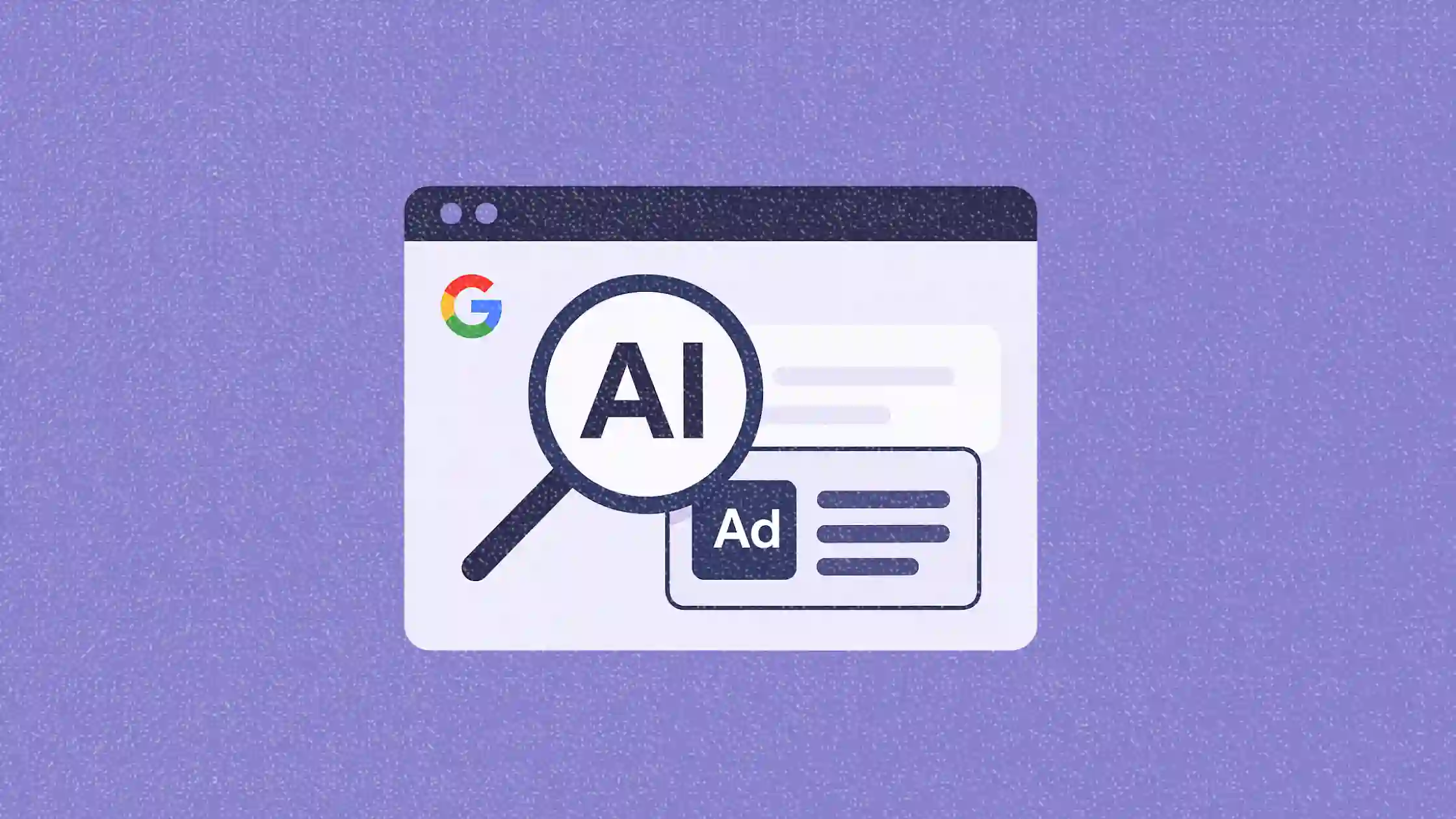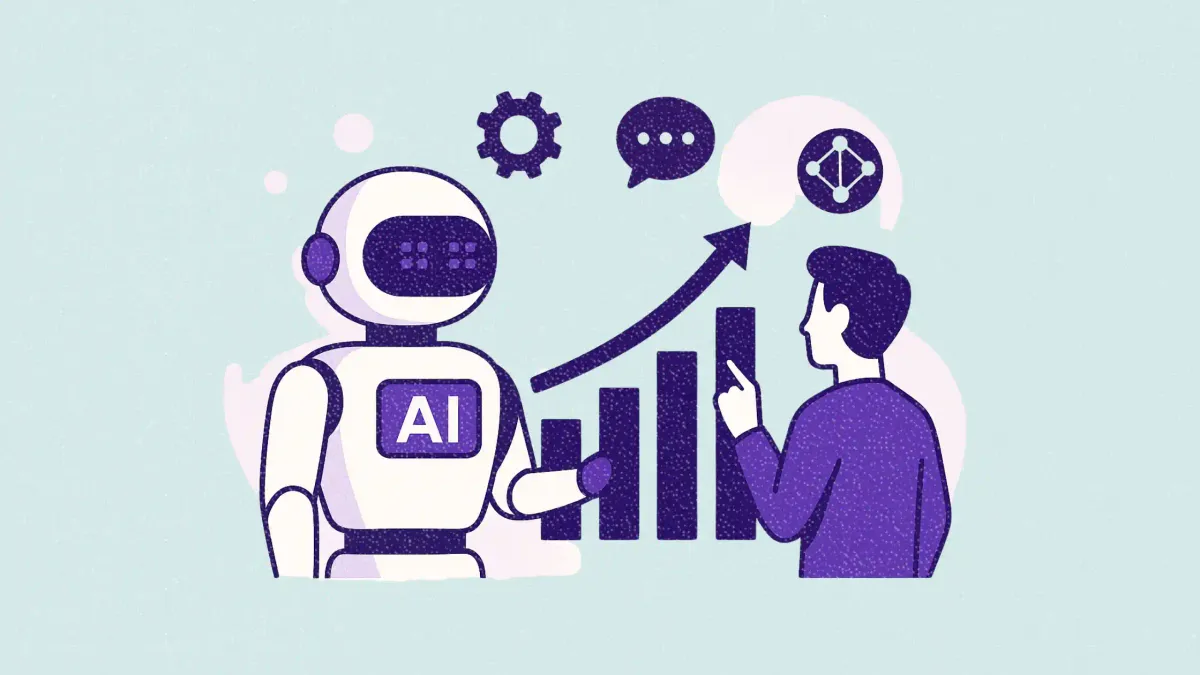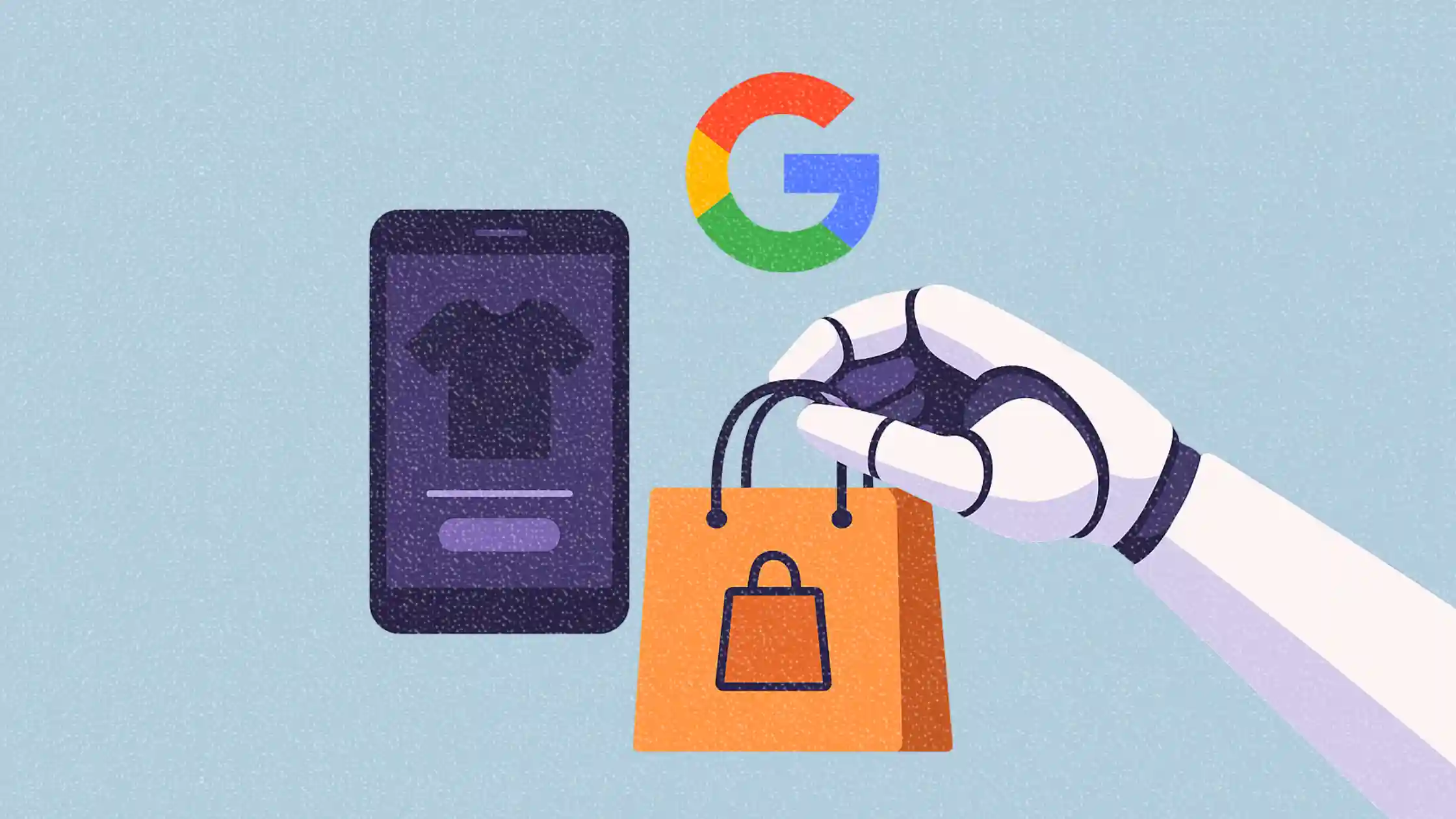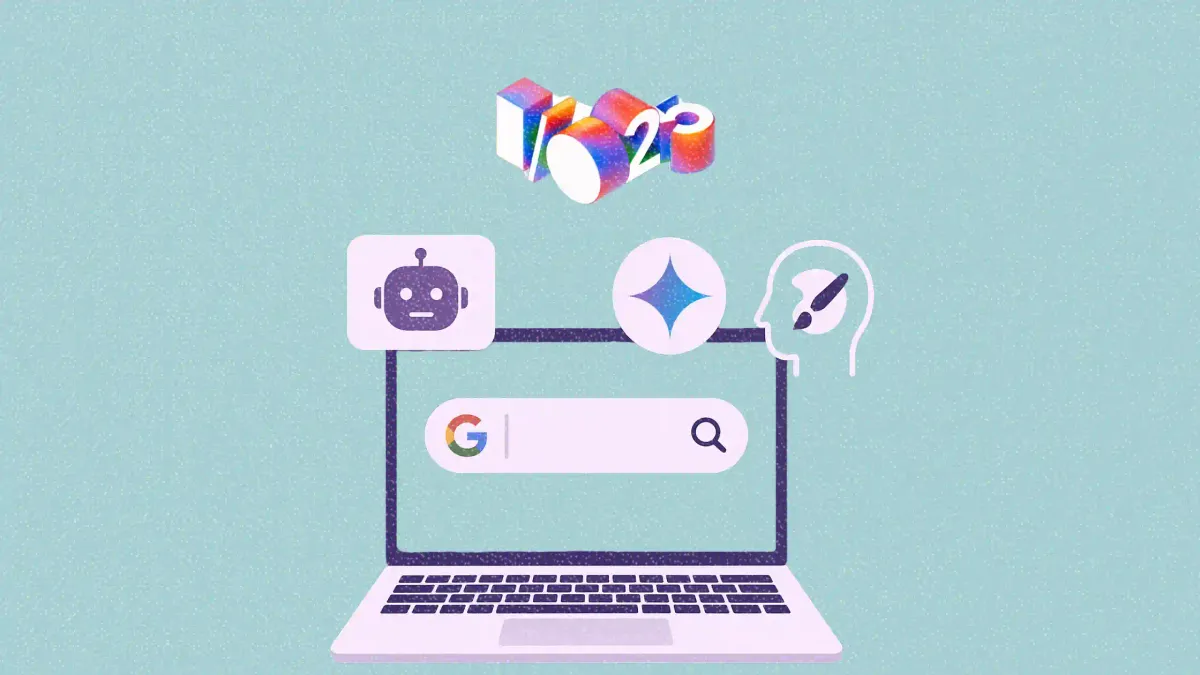Google expands ads in AI Mode: what it means for search marketers
What it means for search marketers as AI answers become ad real estate.

Google is rolling out a major new experiment in the US: ads within AI Mode, the company’s new AI-powered search experience designed for longer, more complex queries. This feature is currently only available for US desktop and mobile users and will soon be rolled out internationally.
This move—announced at Google Marketing Live—marks the clearest sign yet that AI search isn’t just about helpful answers, but also about monetization.
Unlike AI Overviews, which generate quick summaries for common questions, AI Mode aims to guide users through in-depth tasks—like planning a small business website.
It’s also where queries tend to be nearly twice as long as traditional searches, according to Google. And now, those detailed queries will start surfacing ads—both beneath and within the AI-generated answers.
This article explores Google’s latest search shift, why AI Mode is becoming new ad territory, and how marketers can prepare for campaigns that show up in conversational results.
Short on time?
Here is a table of content for quick access:
- Ads are coming to AI Mode and they’re embedded, not just listed
- Google’s AI search strategy is evolving fast
- What marketers should know
- AI search is becoming ad space, you must adapt accordingly

Ads are coming to AI Mode and they're embedded, not just listed
Google shared that ads in AI Mode will appear in multiple formats: either directly inside the AI-generated response or just below it. That subtle placement shift matters. It’s no longer just about showing up at the top of a list; it’s about becoming part of the “answer.”
For instance, someone searching “how to build a website for a small business with limited resources” might now see a multi-paragraph response outlining tools and steps—with a website builder ad embedded as a recommendation.
From there, the user can continue the AI conversation, refining their business idea or exploring marketing content strategies. And yes, more ads may follow based on those interactions.
This experiment builds on earlier tests in AI Overviews. Ads in those spaces were previously limited to mobile, but are now being tested on desktop as well—pointing to a wider strategy to monetize AI-led search journeys.

Google's AI search strategy is evolving fast
AI Mode first launched in March and has already seen major upgrades. Just a day before the ad announcement, Google rolled out several new AI Mode features: Gemini 2.5 integration, shopping enhancements, and Deep Search—a tool that lets users run multiple parallel queries.
Together, these developments signal how seriously Google is betting on AI to reshape the way people search—and shop. The company is testing how ads can live within that experience without derailing user trust.
Importantly, AI Mode is distinct from traditional search results. It’s part chatbot, part assistant, and increasingly, part recommendation engine.
For marketers, that hybrid format will demand new ad strategies that go beyond just targeting keywords.

What marketers should know
If your brand relies on Google Ads—especially smart formats like Performance Max or Shopping—here’s what to watch as AI Mode ads expand:
1. Expect broader reach for automated campaigns
Ads won’t need new formats (yet). Google says advertisers already using Performance Max, broad match search, or Shopping campaigns may automatically show up in AI Mode or AI Overviews.
That means existing campaigns could start appearing in AI-driven results without extra setup—but also without full control over placement.
2. Be ready for ads to become part of conversations
This isn’t a sidebar placement. It’s a contextual insertion. That means your ad might show up mid-answer, acting as a recommendation from the AI.
Brands should ensure their landing pages and messaging align with helpful, high-intent use cases—because relevance will be under more scrutiny than ever.
3. Query length and complexity are changing targeting
Google says AI Mode queries are nearly twice as long as traditional ones. That’s a major shift in how people express intent.
Marketers will need to revisit keyword strategies and consider long-tail search behavior—not just for SEO, but for paid search, too.
4. Prepare for less transparency on placement
As AI Mode becomes a core experience across search, understanding where and how your ads appear will get harder. It’s another step toward a black-box system where automation governs delivery.
Advertisers should double down on testing creative variants, tracking downstream performance, and diversifying across platforms to reduce reliance on any single channel.
AI search is becoming ad space, you must adapt accordingly
With AI Mode, Google isn’t just answering questions—it’s steering discovery, and now monetizing it. For search marketers, that means the boundaries between organic content, paid ads, and AI recommendations are starting to blur.
The challenge? Staying relevant without being intrusive, and driving conversion within AI-driven interfaces where control is limited but opportunity is real.
As Google brings AI deeper into the search experience, marketers will need to evolve just as fast—rethinking how they target, track, and tailor campaigns in this hybrid world of answers and ads.






